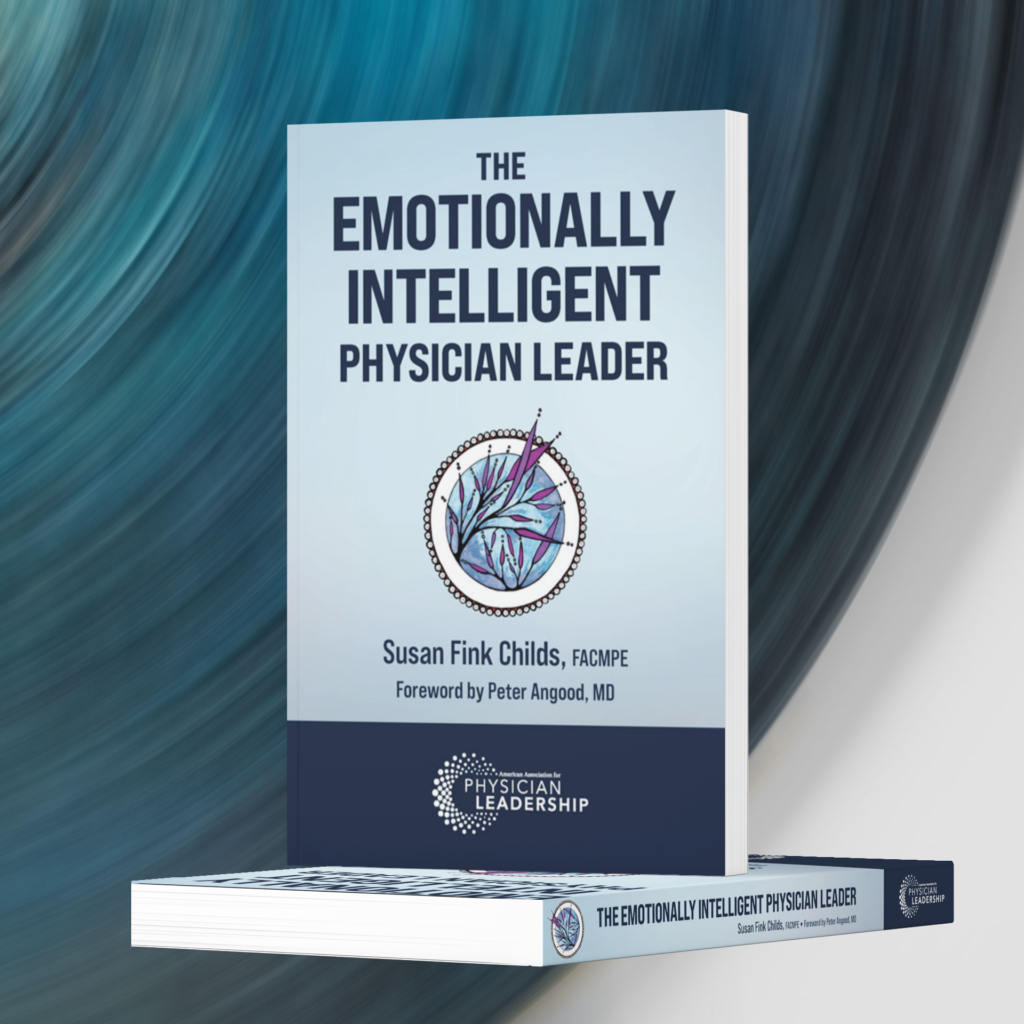The Emotionally Intelligent Physician Leader
In today’s fast-paced world of healthcare, physicians require effective tools to help manage, adapt, and get ahead in their careers. As a physician leader, it’s no secret that emotional intelligence (EI) and an emotional quotient (EQ) is critical to career and life success. Knowing how to use EI can improve relationships with your patients and interactions with your colleagues.
Embracing emotional intelligence has become an essential aspect of contemporary culture. This well-written, concise, and practical book, The Emotionally Intelligent Physician Leader, serves as both an educational overview of EQ in healthcare, and a guide for physicians to follow in pursuit of achieving their fullest potential and balancing happiness with success.
How does this book give you an advantage?
Childs shares key lessons gleaned from her career to provide physician leaders with actionable information to improve their EQ, and build better relationships with patients, as well as others within their organizations.
Here are some of the topics the author discusses in detail:
- Physicians and managing up
- The six primary emotions
- Inter-departmental logistics
- Delegation and practice efficiency
- Basics of body language
- When we have to say no to a patient
- Patients making independent decisions
- How to deal with difficult patients
- Set the stage to establish boundaries
- Shape patient satisfaction
- Questions for peer discussions
- The provider’s role and relationships
- Communicate effectively with peers, patients, and staff
If you’re a physician, The Emotionally Intelligent Physician Leader provides practical findings and insights with emphasis on how to employ your EQ in the most beneficial way.

Susan Childs Talks New Book, Benefits of NCMS Membership
Susan Childs is the founder of Evolution Healthcare Consulting and the author of the book “The Emotionally Intelligent Physician Leader.” She is a well-known speaker and has worked with AAP, ASCENT, ACC, AMA, and MGMA. She shares her insights with NCMS VP of Communications Randy Aldridge on how to be a physician leader and why YOU should join the NCMS.
